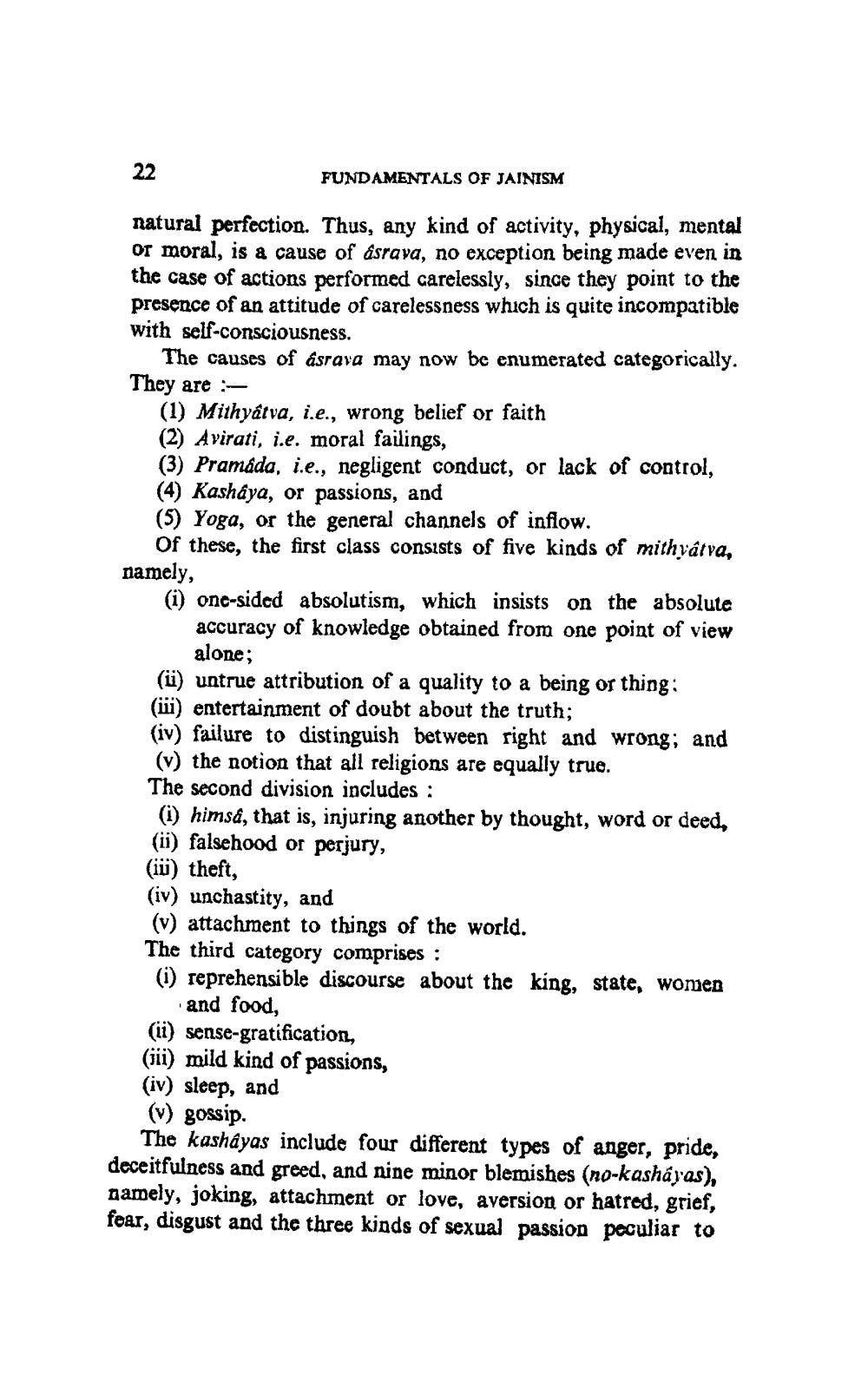________________
22
FUNDAMENTALS OF JAINISM
natural perfection. Thus, any kind of activity, physical, mental or moral, is a cause of ásrava, no exception being made even in the case of actions performed carelessly, since they point to the presence of an attitude of carelessness which is quite incompatible with self-consciousness.
The causes of asrava may now be enumerated categorically. They are:
(1) Mithyátva, i.e., wrong belief or faith
(2) Avirati, i.e. moral failings,
(3) Pramáda, i.e., negligent conduct, or lack of control, (4) Kashaya, or passions, and
(5) Yoga, or the general channels of inflow.
Of these, the first class consists of five kinds of mithrâtva, namely,
(i) one-sided absolutism, which insists on the absolute accuracy of knowledge obtained from one point of view alone;
(ii) untrue attribution of a quality to a being or thing: entertainment of doubt about the truth;
(iv) failure to distinguish between right and wrong; and (v) the notion that all religions are equally true.
The second division includes:
(i) himsâ, that is, injuring another by thought, word or deed, (ii) falsehood or perjury,
(iii) theft,
(iv) unchastity, and
(v) attachment to things of the world.
The third category comprises:
(i) reprehensible discourse about the king, state, women
and food,
(ii) sense-gratification,
(iii) mild kind of passions,
(iv) sleep, and
(v) gossip.
The kashayas include four different types of anger, pride, deceitfulness and greed, and nine minor blemishes (no-kashayas), namely, joking, attachment or love, aversion or hatred, grief, fear, disgust and the three kinds of sexual passion peculiar to




